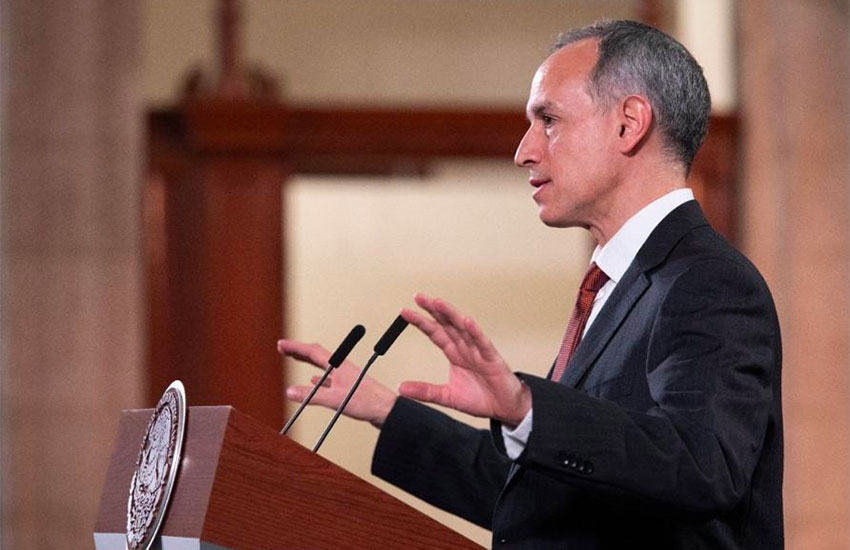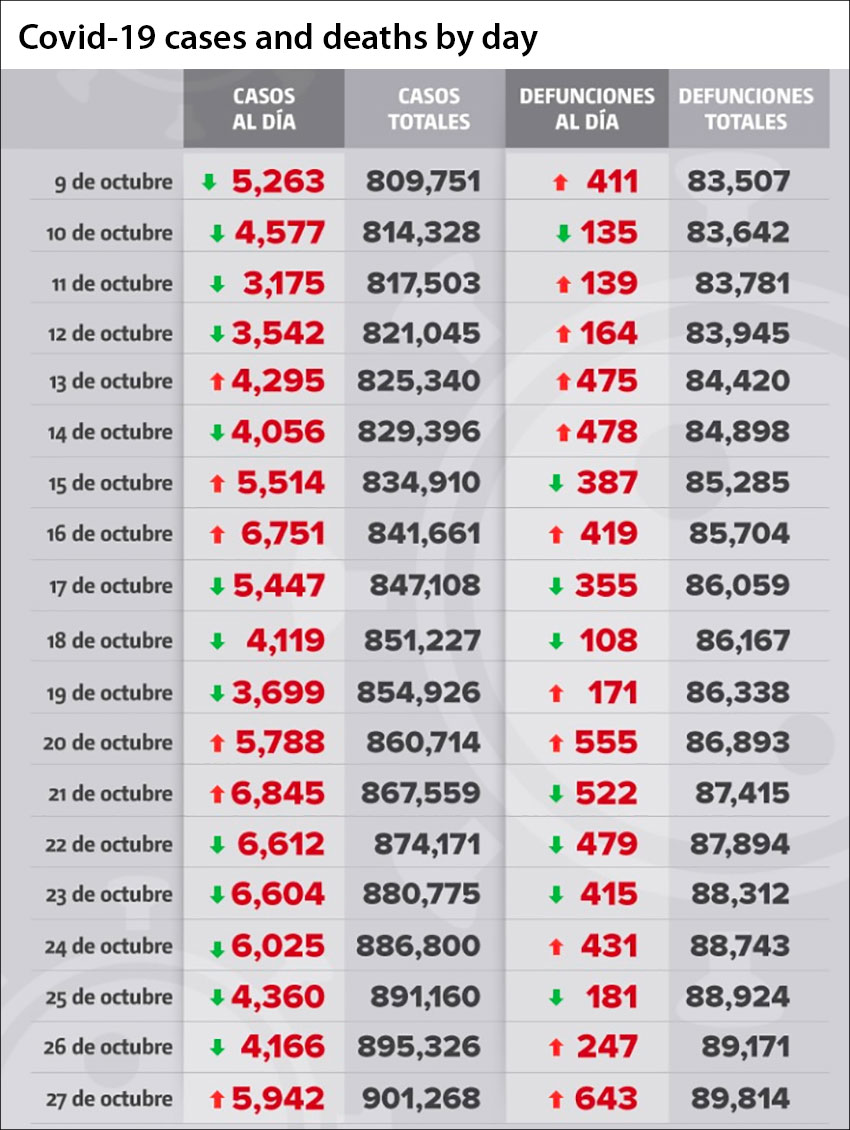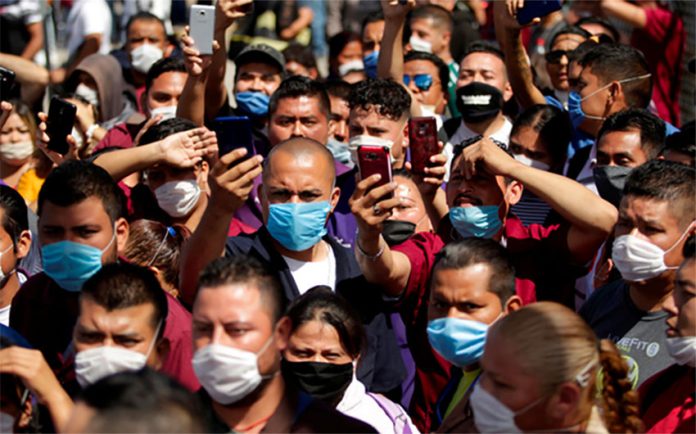Both President López Obrador and Deputy Health Minister Hugo López-Gatell ruled out any possibility that the federal government will enforce the use of face masks, on top of which the latter described their effectiveness in stopping the spread of the coronavirus as “overstated.”
“We’ve recommended and we continue to recommend the use of face masks … but we’re not going to exercise a coercive action that leads to people not wearing face masks being sanctioned with fines or being arrested,” López-Gatell told President López Obrador’s Tuesday press conference.
The coronavirus point man asserted that the value of face masks is “overstated” in the “public narrative,” saying that “scientific evidence shows that they are an auxiliary instrument” in the fight against the spread of the virus.
“They complement other measures – this is the technical stance of the World Health Organization, of the Centers for Disease Control and Prevention in the United States, of authorities in Europe and also of the government of Mexico,” López-Gatell said.
He said that face masks don’t provide significant protection to those wearing them, explaining that their value is that they can stop infected people spreading the virus to others.

“The face masks that several of you are wearing,” López-Gatell told reporters, “are helping you not to infect someone else in the case that you are sick but we have to be very aware they don’t help us as a protective barrier at an individual level.”
The deputy minister also explained why Mexico has not enforced a strict lockdown to control the virus, as has occurred in some countries.
López-Gatell noted that some authorities in Europe have used the police to monitor and restrict people’s movement and that many countries in the Americas have used even “more extreme” measures to keep people at home and thus slow the spread of the coronavirus.
“The use of military forces, for example,” he said.
López-Gatell said the federal government considered using force to control people’s movement but ultimately decided not to.
“Considering the history of Mexico, the social and economic reality of Mexico, … the very unfortunate history of the abuse of public force in Mexico in recent decades and the violations of human rights, we believed that it was highly inappropriate and dangerous to have a restrictive and coercive approach to control of the epidemic,” he said.
“We took care to design a mitigation strategy – the [March to May] national social distancing initiative in other words; a strategy of reducing people’s movement and contact in public spaces” without penalizing anyone who didn’t follow government advice, López-Gatell said.
“There is a great difference between holding people responsible for epidemic control and encouraging people to be part of the solution. When coercion is chosen, the government in a certain way distances itself from its people, … it imposes restrictions on them without … dialogue,” he said.
“What you’re saying is ‘go home or go to jail,’ as has happened in some places. In our case it is different.”
However, in reality some people have indeed gone to jail for not wearing a mask. Police began jailing citizens in San Pedro Mixtepec, Oaxaca, a week and a half ago. At last count, more than 300 people had been rounded up and detained for a few hours.
President López Obrador reiterated the government’s position at Wednesday morning’s press conference, arguing that Mexicans are “obedient, responsible and sensible” and enforcing coronavirus measures with punishment or curfews is unnecessary.
He said using force was an authoritarian measure “that conservatives love, it fascinates them.”

The president said Mexico had been able to reduce the spread of coronavirus without using such measures and by trusting in the public instead.
But the government has been criticized in some quarters for not enforcing a strict lockdown, not advocating more forcefully for face masks and not testing widely for Covid-19. Six former health ministers proposed a new national strategy last month that included a nationwide testing campaign and the mandatory use of face masks.
The government made no formal response to the former ministers’ proposals and López-Gatell said last week that no changes to the current strategy were needed despite rising case numbers.
Mexico’s accumulated case tally rose to 901,268 on Tuesday with 5,942 new cases reported by the Health Ministry. The official Covid-19 death toll increased to 89,814 with 643 additional fatalities registered.
However, the government has admitted that the real death toll is much higher.
The Health Ministry said Sunday that there were more than 193,000 excess deaths between January and September 26 and that 139,153 were judged to be attributable to Covid-19.
The official death toll stood at 76,243 on September 26, meaning that up until that date there were at least 62,910 more Covid-related fatalities than officially reported.
Source: El Universal (sp)
